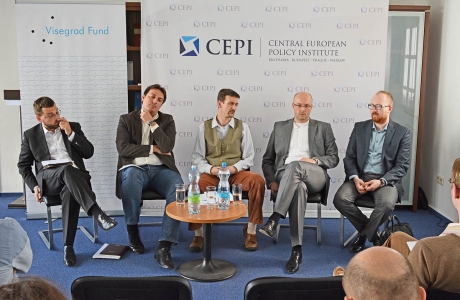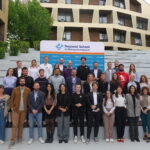Bratislava, 21 March: The scale of the Serbian Progressive Party’s victory in the 16 March election proved surprising to most panellists of CEPI-organised debate. They discussed the impact of the general election on further development in both the country and the region and on relations with the EU.
Serbia has been undergoing a change of direction for the past two years with the process culminating in the early parliamentary election on 16 March. The results were dominated by what many analysts described as a landslide victory of the Aleksandar Vučić’s Serbian Progressive Party (SNS), which earned 158 seats in the 250-member Serbian National Assembly.
The election result was the subject of CEPI debate with Roman Hlobeň, Director of South-Eastern Europe and Turkey Department of the Ministry of Foreign and European Affairs of the Slovak Republic; Tomasz Żornaczuk, Senior Research Fellow on the Western Balkans, Polish Institute of International Affairs; Marko Savković, Programme Coordinator, Belgrade Fund for Political Excellence; Branislav Nešović, Programme Director, NGO Aktiv, northern Mitrovica, Kosovo.
Chaired by Milan Nič, CEPI’s Executive Director, the debate focused on the unprecedented scale of victory of the SNS but also touched the subject of Kosovo.
“For the first time, Kosovo was largely absent in the pre-election campaign, and the DSS – the only party refusing agreements with Pristina – was voted out of the parliament. This election confirmed a new consensus in Serbian politics on EU integration and on pragmatic approach to the region, including Kosovo,”
said Milan Nič.
(Report prepared by CEPI Public Relations Team, 21 March 2014).













